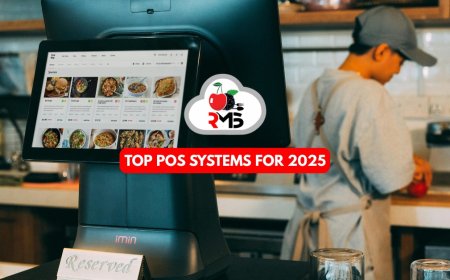Top 10 Use Cases for a Generative AI Voice Bot in 2025
Discover the top 10 ways generative AI voice bots are transforming industries in 2025—from customer service to healthcare and beyond.

As we step further into the era of intelligent automation, generative AI voice bots are becoming essential tools across industries. These bots, powered by advanced natural language processing (NLP) and generative models, can hold human-like conversations, understand context, and execute tasks in real-time. In 2025, their applications are transforming both consumer and enterprise experiences. From customer service to healthcare, here are the top 10 use cases for generative AI voice bots that are reshaping the way we interact with technology.
1.Customer Support Automation
Why it matters: Traditional customer service is time-consuming and costly. Generative AI voice bots can handle a large volume of customer queries 24/7 with contextual understanding and empathy.
Key Features:
-
Natural, human-like dialogue
-
Instant responses across multiple languages
-
Intelligent call routing to human agents when needed
Real-world impact: Companies like banks, telecoms, and e-commerce platforms are reducing support costs by 6080% while improving customer satisfaction scores.
2.Healthcare Virtual Assistants
Why it matters: Healthcare systems face overwhelming patient demands and staff shortages. Voice bots can assist in appointment scheduling, medication reminders, and even basic symptom triage.
Key Features:
-
HIPAA-compliant data handling
-
Personalized patient interactions
-
Voice interfaces for elderly or visually impaired patients
Real-world impact: Clinics are using AI voice bots to screen patients before appointments, reducing wait times and improving care coordination.
3.AI-powered Sales Assistants
Why it matters: Sales teams often lose time on cold calls and qualification. Generative AI voice bots can prospect leads, qualify them, and even set appointments autonomously.
Key Features:
-
Dynamic conversation flows
-
CRM integration
-
Voice personalization based on lead profile
Real-world impact: B2B companies are using voice bots to double their outreach while cutting manual tasks by over 70%.
4.Travel and Hospitality Concierge Services
Why it matters: Travelers expect fast, personalized support for bookings, itinerary changes, and local recommendations. Voice bots offer 24/7 assistance.
Key Features:
-
Multi-language fluency
-
Integration with booking engines and maps
-
Personalized itinerary suggestions
Real-world impact: Hotels and airlines are deploying AI concierges to improve guest experience, upsell services, and automate common queries like check-in/check-out info.
5.Voice-enabled Banking & Fintech Services
Why it matters: Security, convenience, and speed are critical in finance. Voice bots can help users manage accounts, make payments, and understand financial products.
Key Features:
-
Voice biometrics for secure authentication
-
Real-time transaction assistance
-
Financial education via conversation
Real-world impact: Fintech apps are leveraging voice bots to onboard users, provide budgeting tips, and handle 90%+ of common support queries without human involvement.
6.Education and Tutoring Assistants
Why it matters: Students increasingly demand personalized, always-available learning help. AI voice bots serve as tutors that adjust to individual learning styles.
Key Features:
-
Natural dialogue with interactive quizzes
-
Support for multiple subjects and languages
-
Adaptive learning paths based on user input
Real-world impact: EdTech platforms are integrating voice tutors to offer homework help, test prep, and language learning support especially useful for remote or underserved learners.
7.Human Resources & Employee Onboarding
Why it matters: HR teams often get bogged down by repetitive questions and onboarding processes. Voice bots can streamline this, saving time and improving the employee experience.
Key Features:
-
Conversational onboarding flows
-
FAQ handling (benefits, policies, time off)
-
Integration with HRIS platforms
Real-world impact: Enterprises use internal voice assistants for new hire orientation, reducing onboarding time by 50% and improving policy adherence.
8.Retail and eCommerce Shopping Assistants
Why it matters: Voice-driven commerce is on the rise. AI voice bots offer personalized product recommendations, order tracking, and support all conversationally.
Key Features:
-
Voice-based product search and comparison
-
Cart management and checkout assistance
-
Post-purchase customer service
Real-world impact: Online retailers use AI voice agents to drive conversions and reduce cart abandonment by offering immediate voice-based help during the shopping experience.
9.Smart Home and IoT Control
Why it matters: With the expansion of smart devices, intuitive voice interfaces have become the most user-friendly way to interact with the Internet of Things (IoT).
Key Features:
-
Cross-device voice control (lights, thermostat, security)
-
Context-aware responses based on user preferences
-
Integration with routines and automation systems
Real-world impact: Homeowners are increasingly using generative AI to manage complex home systems with natural voice commands, enhancing accessibility and convenience.
10.Mental Health and Wellness Companions
Why it matters: Mental health access is limited in many areas. Voice bots offer a non-judgmental, always-available outlet for users needing emotional support.
Key Features:
-
Empathetic conversational tone
-
Guided meditations and wellness check-ins
-
Crisis detection with escalation paths
Real-world impact: Mental health apps use AI companions for mood tracking, journaling, and providing CBT-based conversation scripts offering comfort and reducing loneliness.
Conclusion
Generative AI voice bots are no longer experimental tools theyre becoming mainstream across sectors. In 2025, what sets them apart is their ability to:
-
Understand complex context
-
Speak naturally in human-like tones
-
Integrate seamlessly into digital ecosystems
As businesses look to scale, reduce costs, and enhance customer experience, these intelligent voice bots will become indispensable.
Whether you're in healthcare, finance, education, or retail, adopting generative AI voice bots can position your organization at the forefront of innovation. The future of voice is not just about speaking its about understanding.







































